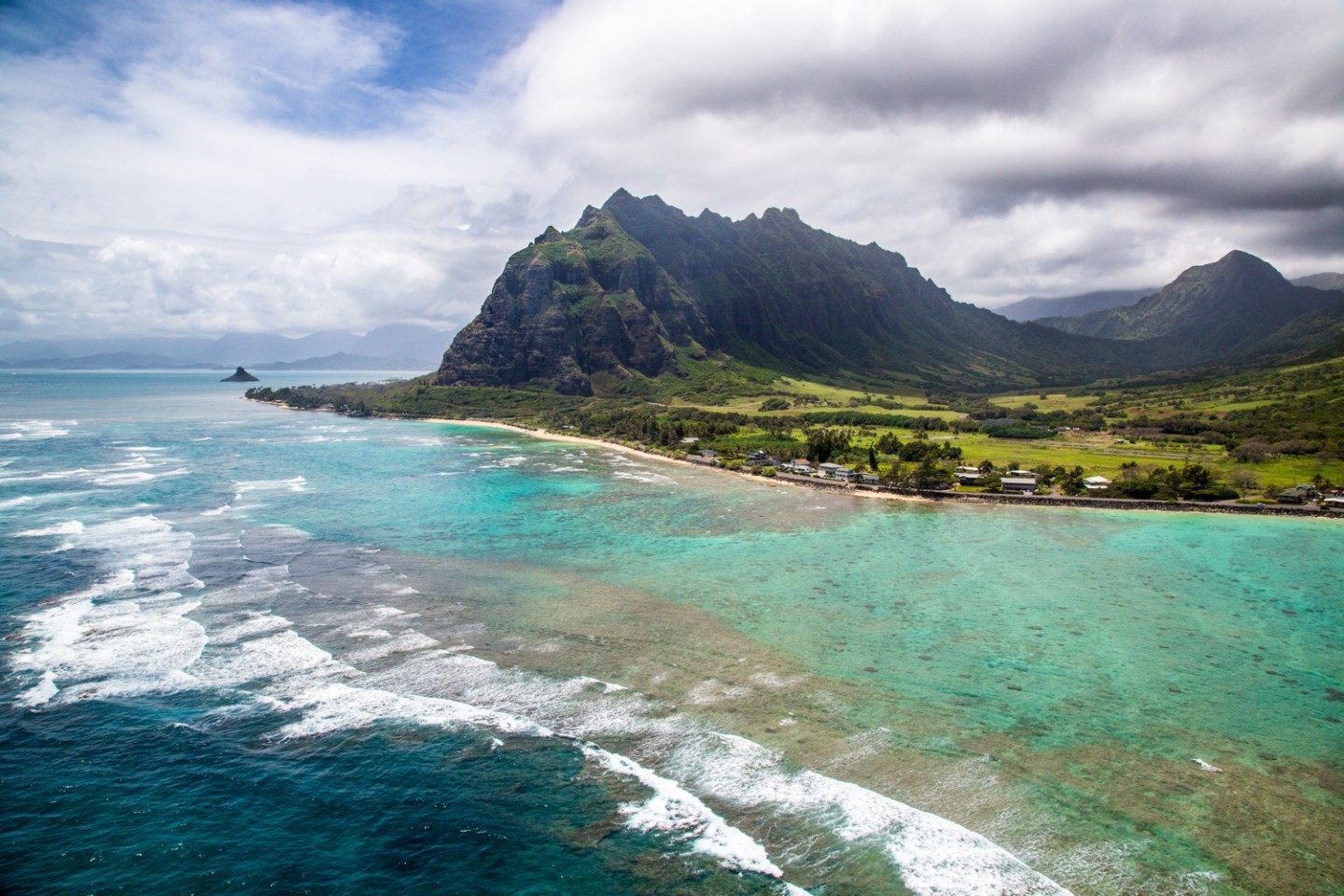
Through their Blue Water Task Force and Ocean Friendly Gardens programs, Surfrider Oahu is testing the waters and engaging community volunteers in clean water solutions to protect public health and safe ocean recreation.
Hawaii is an outdoor playground for those who love the ocean and coast. Surfing, swimming, diving, paddling and beach-going are just some of the recreational pursuits that attract people from around the world to the Hawaiian Islands. Unfortunately, the clear blue, tropical waters that surround the islands are not immune to the pollution that comes along with increasing growth and development.
Hawaii’s beaches and recreational waters are affected by agricultural and urban runoff, and many neighborhoods are still serviced by cesspools. These outdated and inadequate wastewater systems leach nutrients, bacteria and other pathogens into ground and surface waterways that flow towards the ocean. Cesspools and failing sewage infrastructure are particularly problematic during rain and flooding events, and the Hawaii Department of Health (HDOH) issues Brown Water Advisories to warn the public of potential dangers.
The Hawaii Department of Health also runs a beach water quality monitoring program, funded in part by their federal BEACH Act grant, to protect public health at the beach. However, with more than 400 public beaches, 300 miles of coastline and a year-round beach season, it is a challenge for the state’s program to adequately cover every beach throughout the islands.
As a result, the Surfrider Foundation Oahu Chapter has stepped up to help protect clean water and healthy beaches. For years, the Oahu Chapter has helped to host and share state-generated water quality results and beach advisories. With a team of dedicated and highly knowledgeable volunteers, the chapter’s Blue Water Task Force (BWTF) has also grown into a well-established citizen science program. By sampling beaches that are not covered by the state’s program, the Oahu BWTF is generating valuable water quality information to inform safe beach-going.
Surfrider volunteers are currently monitoring fifteen beaches on a biweekly basis, and processing their water samples in at lab at Hawaii Pacific University. Many of the chapter’s sampling sites are located in areas with high concentrations of cesspools or at beaches that are impacted by runoff.
While bacteria levels at most beaches tested by the chapter are generally safe during good weather, two sites have shown concerning results. The stream outflows at Kahalu’u Park and Chocolates surf break located at the Anahulu River outfall in Haleiwa, have consistently failed to meet health standards. Both sites are located in watersheds with high cesspool densities, and the chapter plans to work together with the Department of Health to better warn the public of polluted conditions at these beaches. Visit the BWTF website to view all of the Oahu Chapter’s water quality data and check for beach advisories issued by the state here.
In addition to testing the waters, Surfrider is also leading the charge to address the major sources of pollution in Hawaii. Through their Civics is Sexy program, the Oahu Chapter has trained community members to be informed and effective advocates for clean water. This program has resulted in three state bills aimed at reducing pollution coming from Hawaii’s existing 88,000 cesspools, as well as a new pioneering ban on sunscreens that harm coral reefs.
The Oahu Chapter is also using Surfrider’s Ocean Friendly Gardens program to help solve water quality problems created by flooding and stormwater runoff. Together with Permablitz Hawaii, the chapter organizes a work day, or ‘Surfblitz’, where dozens of volunteers work together to renovate a residential yard. Their efforts result in sustainable gardens that absorb rain, provide beautiful native habitat and produce fruit and vegetables for the homeowner. Each work day is a great opportunity for new volunteers to learn about holistic and sustainable gardening techniques as they work alongside experts and experienced volunteers. Surfblitz events are publicized through social and mainstream media to further increase the outreach potential of this program. Best of all, these events are a lot of fun!
This year, the Oahu Chapter is tackling their biggest project yet by installing the Kaka’ako Ocean Friendly Garden in loving memory of volunteer, Heather Riley. With this project the chapter and their partners are converting a long stretch of commercial land, donated by Kamehameha Schools, into a thriving and productive garden for the community. When complete, this Ocean Friendly Garden and community gathering site will inspire urban water conservation, food security, cultural education, native plantings and hands-on learning. Most importantly, the garden will be a place for the families in this densely developed urban area to connect with the land, or ‘aina’. Surfrider and Permablitz Hawaii volunteers have cleared the land, prepared the soil and have started planting native plants on-site. The community and chapter are looking forward to seeing this site fully transformed into a beautiful native garden and cultural space in the coming months.
